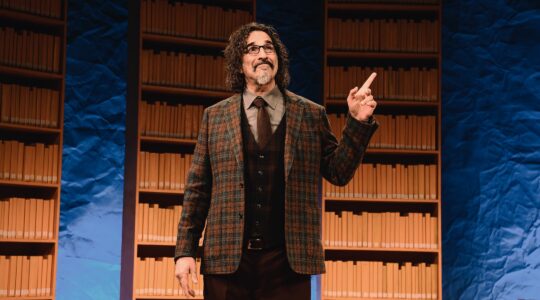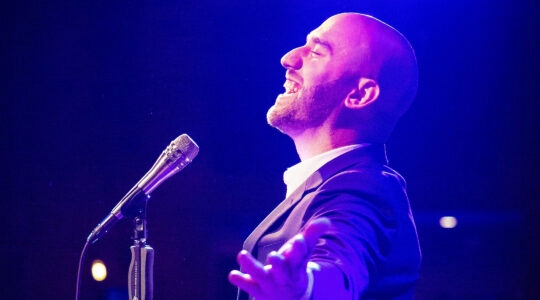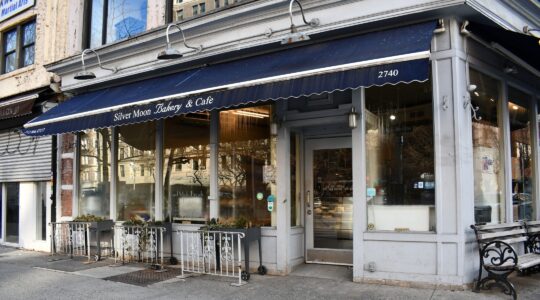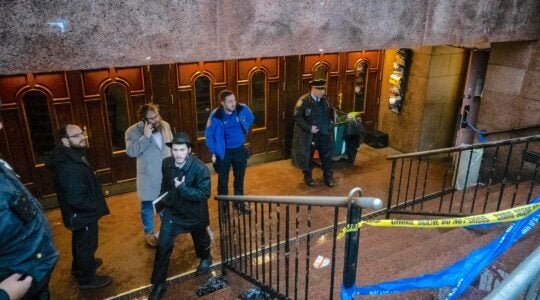With Jewish day schools reeling from a statewide test revealing that more than half of their fourth-graders failed to meet state reading standards, Jewish schools are now being confronted by a new test ó but only for principals and with only one question:Will the strategy be to improve academically, or to simply exclude those students who might drag down the scores?That question was posed by Rabbi Martin Schloss, director of school services for the Board of Jewish Education of Greater New York.ìMy great fear is that some of schools that didnít do well will become overly selective, more so than they are now, and theyíll pull out all stops to show better scores,î he told The Jewish Week.ìI hope that we donít deny kids who are challenged, or who are struggling, a place in Jewish day schools, particularly in the schools with scores that donít match their reputations,î he said.Obviously, he said, thereís only one right answer: ìThere has to be a place in Jewish education for any child that wants one.îNevertheless, a ìscaryî problem remains: ìWe want to mainstream students [with learning disabilities or reading problems] back into the regular classroom. At the same time, there is a penaltyî ó lower scores ó ìfor schools that do that,î Schloss said. ìThatís a situation I think we should all be watching.îExclusion would be ìa huge tragedy,î said Rabbi Haskel Lookstein of Ramaz on the Upper East Side. He said it has not, and will not, be the case at Ramaz, considered among the elite of Jewish schools despite scores showing 31 percent of its fourth-graders reading below par.ìWe have to serve a community,î said Rabbi Lookstein. ìIf some kids have learning difficulties, itís our job to serve them, too.îBut Rabbi Aaron Fink, principal of Rockland Countyís A.H. Schreiber Hebrew Academy, where 33 percent of fourth-graders failed, forecast that ìschools will want to change their reputation by not taking those kids in anymore, or theyíll be considered a low-functioning school and people wonít want to send their children there.îìIf the purpose of Jewish education is to educate children, Iím not sure what weíll be accomplishing by that,î he said. ìThereís such pressure to be the best, best, best. But best has a lot of different terminologies.îRabbi Reuven Bernstein, executive director of Yeshiva & Mesivta Toras Chaim-South Shore (L.I.), where 24 percent failed, predicted only the brave would stay the course. He noted the ìexcessive competition among Jewish schools.îìWe live in a consumer society. People try to figure out how they can judge the quality of a school. Certainly, something objective seems to be more reasonable, so people will be looking at tests and statistics.ìSchools will become more wary and concerned at how theyíre scoring,î Rabbi Bernstein said. ìWe have a commitment to help all students, and weíre not going to change ó but it will take brave schools to do that.îIn fairness to these schools, their glass is more than half filled: At the Schreiber Academy, 66 percent passed; 76 percent at South Shore; 69 percent at Ramaz. However, Rabbi Lookstein said his own reaction to the test was ìdisappointment.îìFrankly,î he said, ìwe didnít take the test that seriously, nor did we administer it under good circumstances. We didnít prepare our kids at all. They had no experience in taking this kind of a test. It was taken cold. Unlike other standardized tests given in the classroom, this was given in a noisy place, in the dining room, with a lot of other things going on.ìAlso, the whole class didnít take the test. About a quarter of the kids were absent on one or more of the three days that the test was given, so their tests couldnít be included,î Rabbi Lookstein said. ìHaving said that, weíre going to look very carefully as to whether it was a statistical accident or whether, in fact, itís a real measure of how our kids are doing. We intend to find out, and if real, take the steps to correct it.îFor Ramaz, the state test is not the only measure. Itís been one of the few Jewish schools that has undertaken statistical surveys on the academic success and religious observance of its students and graduates, and even the amount of money given for financial aid.ìWeíre rather pleased with how our kids perform,î said Rabbi Lookstein, ìand how they continue the ideals that are taught in our school.îRabbi Fink said the Schreiber Academy would be making ìcertain adjustments to our curriculum.îHe explained that the school, and many other Jewish schools, had been taking the Stanford Achievement Test, which was considerably different from the New York State test. There were no essay questions on the Stanford, unlike the state test, and not all fourth-graders are prepared for that.ìIf youíve been geared toward the Stanford for the last 10 years, youíve been teaching apples but were suddenly tested on oranges,î Rabbi Fink said. ìWhen New York State changed its standards with this new test, it really didnít communicate very well, to the non-public school community, what the new standards would be. When our teachers began the year, they still expected that the standard protocol would be the Stanford.îRabbi Fink said that with other tests, the school was able to pay for ìa thick report that gives us an analysis telling us what questions our students did not answer correctly, and if there was any pattern in our wrong answers. If they all make a mistake with commas, say, then you know the teacher didnít do a good job teaching commas.ìWeíre not getting that from this test,î he said. ìThat makes it more difficult for the school to target what area of our curriculum needs help.îAnother state test, for math, was also given but the results arenít expected until October, at the earliest.
The New York Jewish Week brings you the stories behind the headlines, keeping you connected to Jewish life in New York. Help sustain the reporting you trust by donating today.




